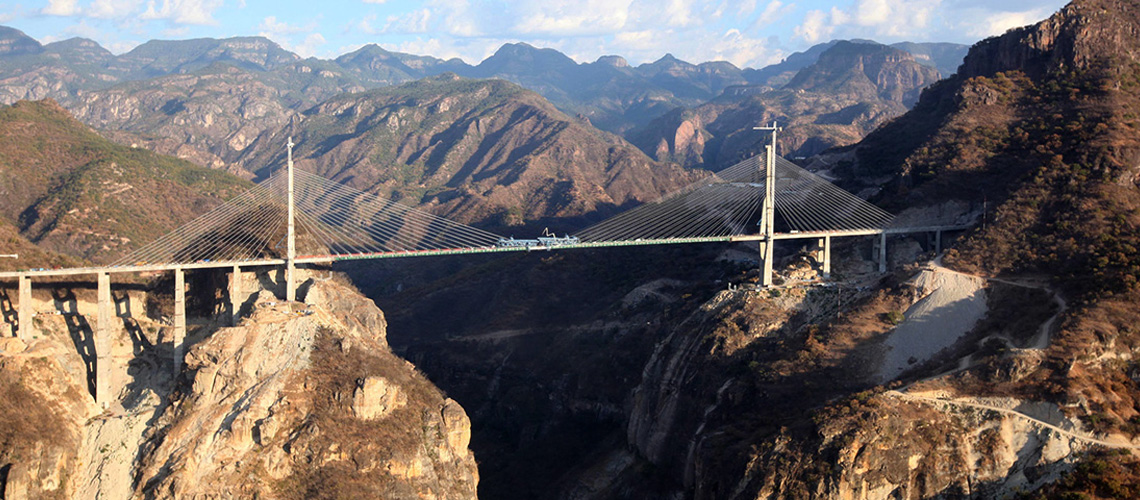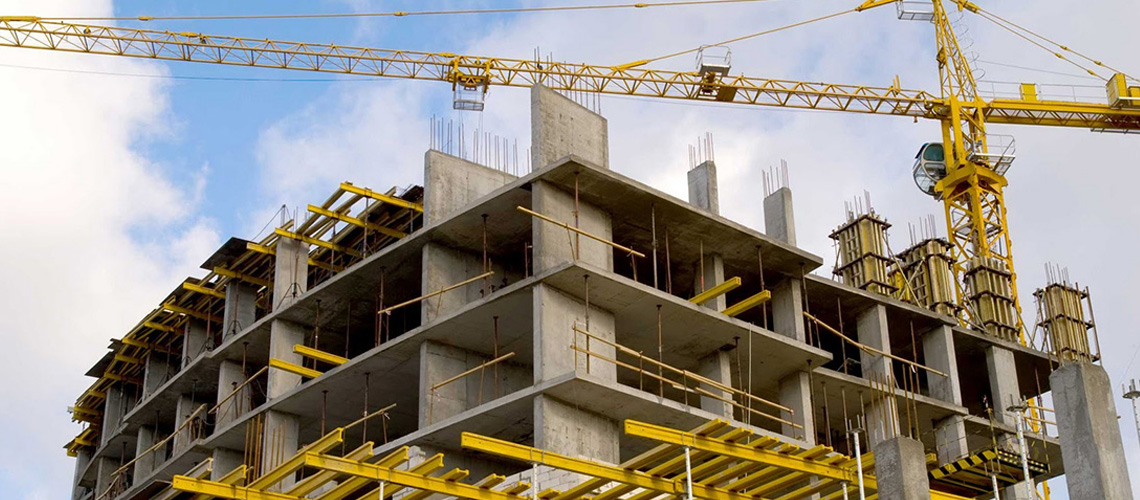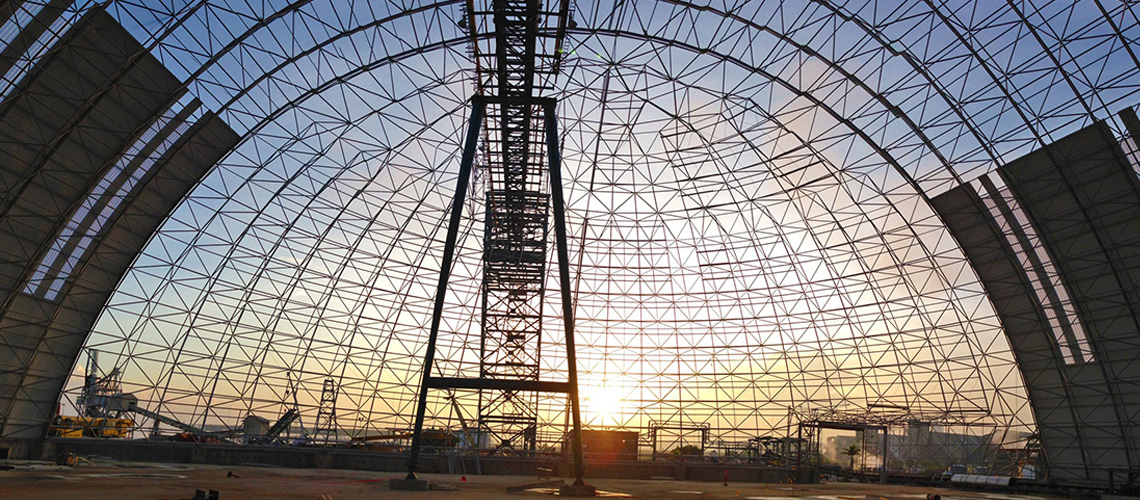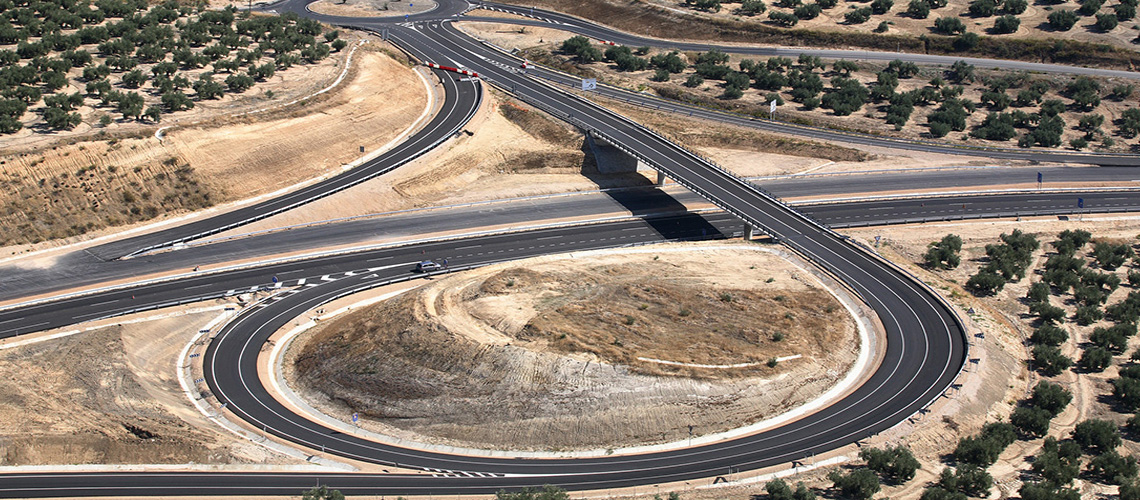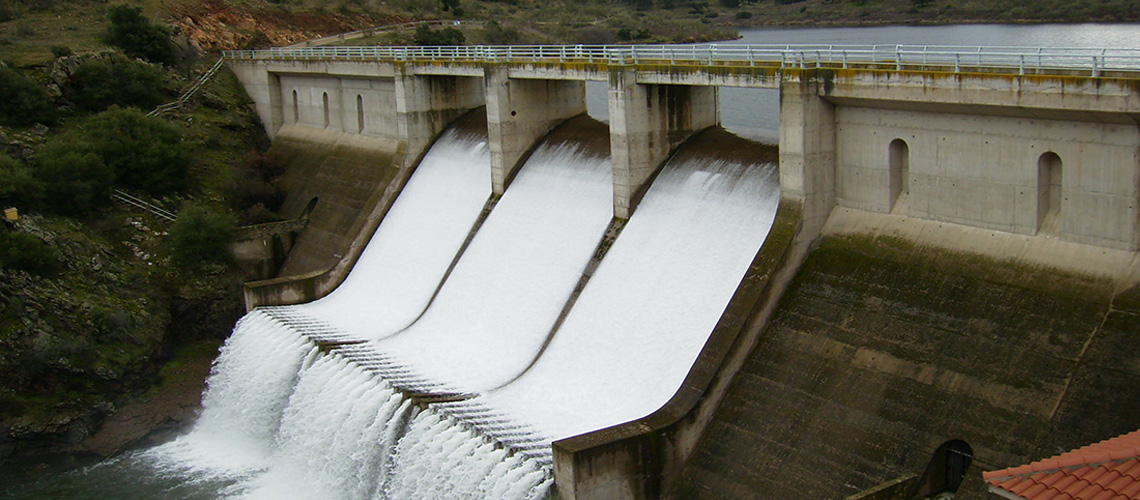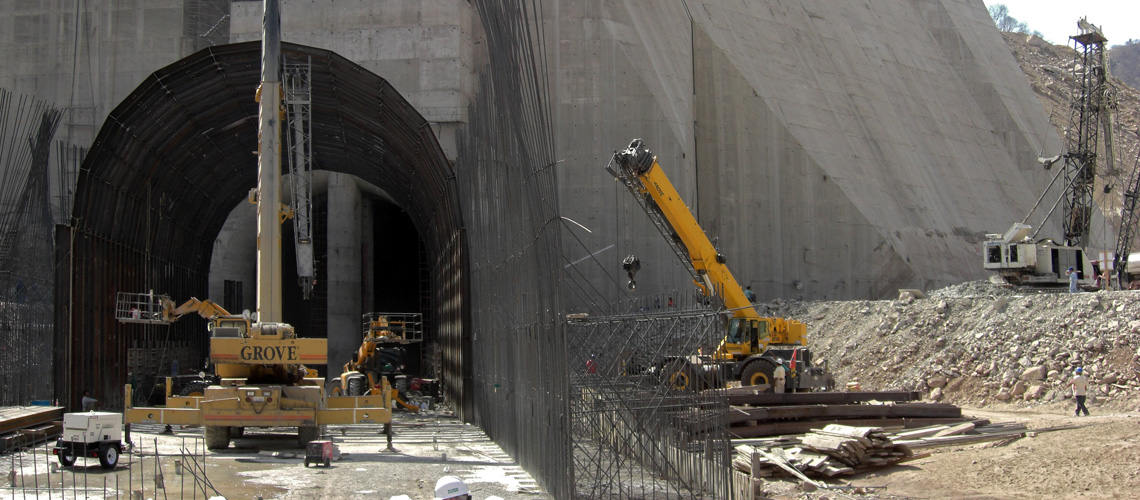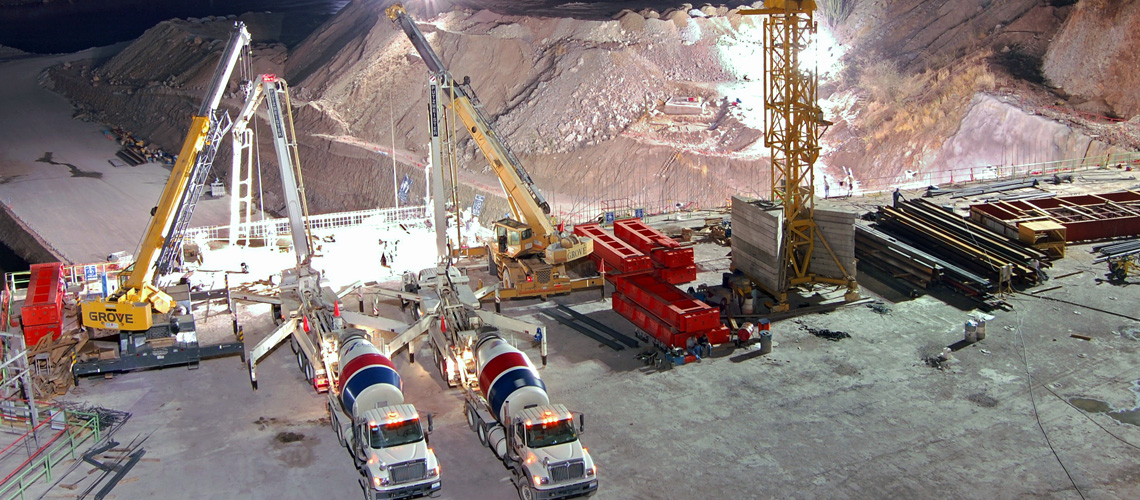The Civil Engineer has a multidisciplinary training that consists in general knowledge in mathematics, physics and chemistry, and knowledge on the areas of his/her specific branch. He/she has also good notions in computing, graphic communications, data bases, management and project evaluation, and is trained to work on the planning, design, organization, construction, operation and conservation stages of civil and infrastructure jobs.
The students interested in getting a Bachelor´s degree in Civil Engineering, in the Faculty of Engineering at UNAM, must have completed the studies at the Escuela Nacional Preparatoria, the Colegio de Ciencias y Humanidades or other programs of preparatory school. It is desirable the they studied the subjects corresponding to the area of physics and mathematics of the preparatory level. In any case, the desirable profile includes the following knowledge, abilities and attitudes.
He/she must have math background in algebra, analytic geometry and calculus of one variable functions; must be familiar with physics related to classic mechanics, and have general knowledge of chemistry and computing. It is also convenient that he/she knows some English, at least being able to read it. The important abilities are a good disposition for team work, to be able to analyze and synthetize, to adapt easily to new situations and to have a creative nature.
Graduates of the degree in Civil Engineering must possess capacities for innovation, potential to contribute to the creation of technologies and entrepreneurial attitude.
You will have clear ideas about mathematical modeling of physical phenomena and optimization; they will be open to both continuous learning and interdisciplinarity. They must have knowledge and skills of oral and written communication, with social sensitivity and professional ethics, and with potential and vocation to become a factor of change.
SpecificAt the end of his professional training, the graduate of the degree in Civil Engineering will possess the following knowledge, skills and attitudes:
You will have clear ideas about mathematical modeling of physical phenomena and optimization; you will be open to both continuous learning and interdisciplinarity. They must have knowledge and skills of oral and written communication; With social sensitivity and professional ethics; and with potential and vocation to become a factor of change.
The training combines three components: technical excellence, ability to lead and ability to influence and integrate.
The graduate
• Considers the social, economic and environmental aspects necessary to achieve optimal approaches to the planning, design, construction, supervision, operation, maintenance and rehabilitation of infrastructure, facilities and systems, in water management, sanitation, urban development, housing, energy, transportation and communications, among others.
• He/she is innovative and integrates knowledge and technology.
• He/she considers sustainability in its projects, including the social, economic and environmental dimensions.
• Identifies, quantifies and manages the risks and uncertainties caused by increasingly destructive natural phenomena, accidents, unusual loads and other threats, to ensure proper safety in projects and constructions.
• He/she is a leader in the discussions and decisions that make public policies on infrastructure and technological services, as well as for the positive evolution of society and culture.
Knowledge
The graduate has general knowledge in:
• Mathematics, physics, chemistry, biology, mechanics and materials.
• Technical knowledge of planning, design, construction, operation, maintenance and rehabilitation of structures, systems and facilities.
• Probability, statistics and decision making in uncertain conditions.
• Public policies, laws, regulations and financing mechanisms.
• Social sciences and humanities, including economics and ethics.
• Foundations of business administration, such as legal issues of property and labor, decision making, systems analysis and accounting notions.
In addition, technical know-how such as:
In the planning stage:
• Identify social and development needs, at local, regional and national levels through diagnosis of the current situation.
• Analyze the current legal framework related to the types of project or construction work.
• Analyze the public policies associated with the projects to be developed.
• Evaluate the technical, social and economic feasibility of projects, based on ethical and sustainability criteria.
• Formulate the specific development plan for the projects.
In the design stage:
• Perform the required research for the system design.
• Conceptualiza el sistema a partir de los requerimientos.
• Conceptualize the system based on the requirements.
• Select the models and methods of analysis applicable to the design.
• Dimension the components of the system according to the corresponding regulations.
• Draw up construction drawings, calculation reports and specifications of the executive project.
In the construction stage:
• Analyze the information available to build the project.
• Select process, methods and strategies of construction with criteria of sustainability and analysis of the life cycle, both of materials and the work itself.
• Develop work programs and budgets.
• Manage the resources, contracts, execution and completion of the work in accordance with current regulations.
• Execute and supervise construction procedures, quality control and safety of the work site.
In the operation stage:
• Analyze the processes, equipment, machinery and methods of operation of the systems.
• Manage the human, material and financial resources used in the operation of the systems.
• Supervise the operation of the systems.
In the maintenance and rehabilitation stage:
• Evaluate the state of the built systems.
• Develop proposals for preventive and corrective maintenance.
• Execute the projects and manage contracts and resources of preventive and corrective maintenance.
The graduate has:
Abilities
• Applies statistical analysis, computational modeling, specifications and design, construction, operation and maintenance standards and project management methods.
• Learns, understands and masters new technologies and methods to increase the quality of his/her work, as well as individual and organizational effectiveness and efficiency.
• Leads to develop, articulate and improve infrastructure and achieve consensus by practicing empathy, inclusiveness, solidarity, persuasion, patience and critical thinking.
• Directs the tasks, projects and programs to supply the expected products, satisfying the budget, the program and other restrictions.
• Communicates his/her knowledge effectively, applying information and communication technologies.
• Collaborates in intra-, multi- and inter-disciplinary teams, both face-to-face and remotely.
• Designs, performs and interprets laboratory and field experiments.
Attitudes
• Ethical behavior including: confidentiality, compliance with codes of ethics, non-corruption, honesty, honor and integrity, as well as respect for public health, safety in works and social welfare.
• Commitment, vocation of service and enthusiasm to establish and achieve personal goals and those of the institution where he/she works.
• Curiosity and ambition to undertake the continuous learning of new knowledge, new technologies and innovative applications of the existing technology.
• Optimism in the face of challenges and setbacks with fidelity to your professional vision, planning, perseverance, flexibility and teamwork.
• Respect and tolerance of the rights, values, points of view, property and susceptibility of others.
• Interest in the social implications of engineering projects, and recognition of the high degree of interdependence within the project teams, between them and their clients.
• Creativity, critical thinking and entrepreneurship that lead to the identification of possibilities and opportunities for personal development.
The Civil Engineer plans, designs, constructs, manages, preserves, operates, repairs and dismantles civil works: of infrastructure and urban development, applying the most advanced scientific and technological knowledge, in a globalized world context, preserving and improving all aspects of the environment. Also, it has several options of work: in a public or private institution, in the free exercise of the profession, teaching or research; for these last two options, he/she needs to study a graduate program: specialization, masters and doctorate.
In the public sector, its services are required in agencies of the three levels of government, related to energy, water, communications, transportation, health, housing, urban and rural development, among others. In the private sector, in construction companies, consulting firms and companies of associate professionals, among others.
He/she also teaches in public and private institutions of higher education. He also works in public and private institutes and research centers.
Free trade agreements, globalization policies, assessments and accreditations of the bachelor's degree by external agencies, open the possibility for graduates to develop professionally in the participating countries.
It is important to note that the country currently requires civil engineers with adequate training to meet the following challenges: increase and maintain the infrastructure that the population growth demands, seek strategic positions for decision making to meet social needs. Manage projects adequately including the sustainability approach, use new materials, technologies and alternate energy sources.





